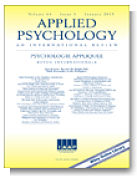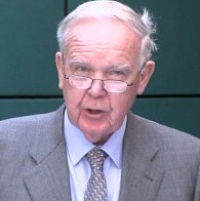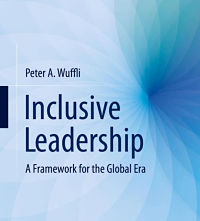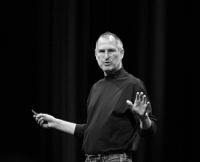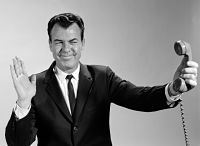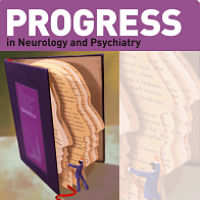Indexes - all Resources
Does power make you mad? (BBC radio programme: 2015)
Owen Bennett Jones speaks with a distinguished group of journalists, academics, psychologists, diplomats and politicians (including Lord David Owen, founder of the Daedalus Trust) to discuss the merits and abuses of personal power. Owen Bennett Jones BBC World Service 10 July 2015 Should political leaders be subject to term limits? Is power so intoxicating that too much of it sends...
Written by: Jones, Owen Bennett
ViewSpecial Issue: Beyond the bright side: dark personality in the workplace. (2015)
“..dedicated to closing gaps in our knowledge about negative aspects of organisational behaviour, particularly the role that dark personality plays in the workplace and in predicting negative organisational behaviour." Various authors Applied Psychology, January 2015, Volume 64, Issue 1 “While a recent movement towards positive psychology calls for a stronger focus on the positive aspects of life and psycholo...
Written by: Applied Psychology.
Read moreCortisol and testosterone increase financial risk taking and may destabilize markets. (2015)
“Stressful and competitive working environments could be increasing hormone levels and having an impact on decision-making.” Carlos Cueva, Departamento de Fundamentos del Análisis Económico, Universidad de Alicante and R. Edward Roberts, Department of Medicine, Imperial College London also Tom Spencer, Department of Psychiatry, University of Cambridge; Nisha Rani, Cambridgeshire & Peterborough NHS Foundatio...
Written by: Cueva, Carlos; Roberts, R. Edward; et al
Read moreGuest Blog: Sir Bob Reid – ‘Leadership’. (2015)
“(The Daedalus Trust) seeks to identify, preserve and nurture the elements which will take our leaders towards achievement and success without the dangers of their going too far and taking their colleagues with them. Sir Bob Reid. Chairman ICE Futures and ICE Clear Europe. Former Chairman and Chief Executive, Shell UK Limited; former Chairman British Rail, former Deputy Governor of the Bank of Scotland An...
Written by: Reid, Sir Bob.
Read moreInclusive leadership: a framework for the global era (2015)
"...leaders no longer understand global financial ecosystems' complexity... fragmented actors make millions of decisions in isolation ...finance and capitalism have decoupled from economic value and the values of civilisation itself. Tomorrow's leaders must think more inclusively to solve these challenges." Peter Wuffli. Former UBS CEO Springer Adapted from the Forbes review by contributor Brook Manville: In...
Written by: Wuffli, P. A.
Read moreOverlapping semantics of leadership & heroism: Expectations of omnipotence, identification with ideal leaders & disappointment in real managers. (2015)
‘Leaders’ and ‘heroes’ are so tightly linked in our semantic construction of the world that speaking of one easily evokes associations with the other. Jan Ketil Arnulf; BI Norwegian Business School, Oslo, Norway Kai Rune Larsen; Leeds Business School, University of Colorado at Boulder, USA. Scandinavian Psychologist, 2, e3. Photo: Ben Stanfield / Flickr. The advent of seemi...
Written by: Arnulf, J. K., & Larsen, K. R.
Read moreToo arrogant for their own good? Why and when narcissists dismiss advice. (2015)
“…narcissistic managers may perform poorly because, among other reasons, they are particularly ineffective in taking advice from others when making decisions.” Edgar E. Kausel, University of Chile; Satoris S. Culbertson, Kansas State University; Pedro I. Leiva, University of Chile; Jerel E. Slaughter, University of Arizona; Alexander T. Jackson, Kansas State University Organizational Behavior and Human Decision Processes<...
Written by: Kausel, E. E., Culbertson, S. S., Leiva, P. I., Slaughter, J. E., & Jackson, A. T.
Read moreReducing CEO power can undermine a company’s legitimacy. (2015)
In high power-distance cultures, customers will view a strong CEO as a signal of legitimacy. In low power-distance cultures, a strong CEO is a warning flag. Published in IdeasForLeaders.com #610 “A separation of power between CEO and a board of directors is often viewed as a sign of good governance. A new study reveals that reducing the power of a CEO may actually diminish rather than reinforce the legitimacy of a company in its ...
Written by: Krause, R., Filatotchev, I., & Bruton, G.
Read moreHopes & hubris: ‘Latest Advances in Psychiatry (LAP)’ Symposium report. 2015
“..while hubris may have played a part in the downfall of huge international companies … there has been little research into its causes, let alone potential treatment.” Steve Titmarsh, Progress in Neurology and Psychiatry, May/June 2015 Hubris syndrome was the topic of the keynote lecture for the most recent annual ‘Latest Advances in Psychiatry’ Symposium held in March at the Royal College of Physicians in London. Lo...
Written by: Daedalus admin
Read moreThe trouble with being too confident. (2015)
“Too much self-confidence means you start missing the warning signs that you might be wrong … because, to you, the signs don’t even exist. Sydney Finkelstein ‘Syd weighs in’, BBC Worldwide - Capital 27 May 2015 "All you have to do is look at popular movies to see how self-confidence is such a universal characteristic of effective leadership. James Bond, Indiana Jones, and Cat...
Written by: Finkelstein, Sydney.
Read more






